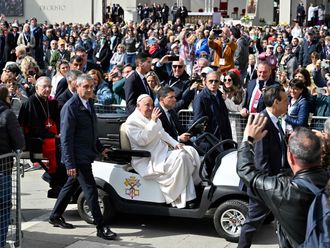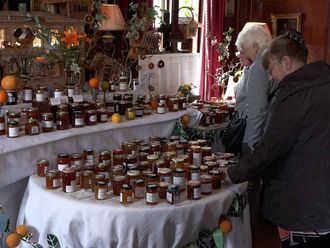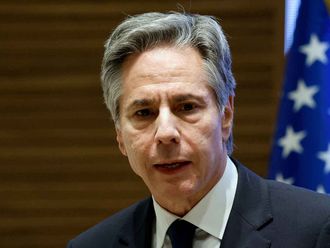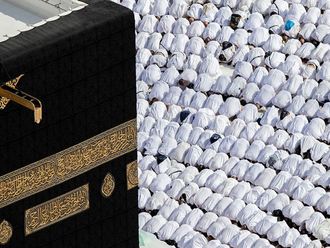Rome: Derided as an empty-headed puppet by his opponents, telegenic young gun Luigi Di Maio has engineered the Five Star Movement’s rise from populist insurgency to Italy’s biggest political party by far.
With boyish good looks and an easy-going manner, 31-year-old Di Maio symbolises a strategic shift for the anti-establishment party from the frantic conspiratorial ranting of iconoclast founder and stand-up comedian Beppe Grillo to a new measured, reassuring style.
Di Maio has been criticised for his poor command of grammar but waged an exhausting campaign around the country, capturing new voters in economically disaffected regions of southern Italy.
The party looked set to win more than 30 per cent of the national vote, according to preliminary results.
While this would be second place to the main right-wing coalition, the result would make it the largest single party in parliament, followed by the ruling centre-left Democratic Party at 20 per cent.
The party has used its newly “mature” image to capture voters from the traditional parties that 69-year-old Grillo long railed against.
Instead of the expletive-filled rants of his shaggy-haired former boss, Di Maio offers calmer, considered political reflections.
“We do not want a populist, extremist or anti-European Italy,” Di Maio has said.
“He is very popular among the party faithful and his strength lies precisely in being completely different from Beppe Grillo, both in his communication style and in his appearance,” said Alberto Castelvecchi, a professor at Rome’s Luiss University.
‘Reassuring to mums’
But despite the apparent differences, Di Maio is very much a Grillo disciple.
He has been involved with M5S since its creation in 2009, campaigning against corruption and the EU while promoting political transparency and direct democracy.
Following the February 2013 election, M5S won a spectacular quarter of the vote and Di Maio, then aged just 26, was among 108 M5S candidates elected to the Chamber of Deputies — the lower house of the Italian parliament.
A month later he became the chamber’s youngest ever deputy speaker.
His astonishing ascent did not go unnoticed and the nature of his elevation to rank of prime ministerial candidate also raised eyebrows.
Selected via an online vote, in which Di Maio’s competitors were relative unknowns, many commentators branded his election as a coronation organised by “puppet-master” Grillo.
“Is it the man who is being chosen or his readiness to take orders and advice?” asked newspaper La Stampa.
Others questioned his political authenticity, accusing him of being a hybrid creation of Grillo and consultants.
“Di Maio was created to be moderate, reassuring to mums,” according to Italian political journalist Jacopo Iacoboni.
‘Riding a wave’
Di Maio was born on July 6, 1986 into a well-to-do family in Avellino near Naples.
His father Antonio had a small construction business and was an activist for a now-defunct neo-fascist party Italian Social Movement, while his mother Paola was a Latin teacher.
The eldest of three children, Di Maio studied computer engineering at Naples University, later switched to law and never completed a degree.
According to a CV posted on M5S’s website, Di Maio founded his own web and social media marketing business while studying, as well as working on video projects.
That focus on marketing and presentation helps explain why M5S has managed to shift its to tone on key issues with Di Maio at the helm.
The party had consistently called for Italy to leave the Eurozone, but Di Maio recently made more conciliatory noises about the idea of staying in the bloc.
His reaction was also noted following the murder of a teenage girl, blamed on a Nigerian, and a far-right revenge shooting that left six African migrants injured in the central town of Macerata last month.
Amid a public outcry, Di Maio stayed silent on the gun rampage and instead focused on former prime minister Silvio Berlusconi for creating the “ticking social time bomb of immigration”.
“On matters like ethics and immigration,” wrote Catholic weekly Famiglia Cristiana, Di Maio ideas are “like those of a surfer riding a wave”.












